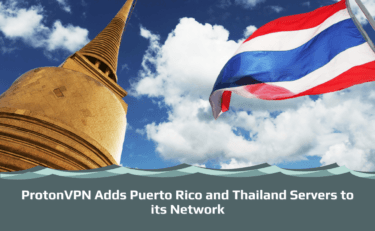The internet is a dangerous place. Hackers lurk in the shadows, waiting patiently for their next victim to go online. They will attempt to infiltrate your computer and steal important data. The best way to prevent this from happening is by using a VPN service that offers military-grade encryption with secure protocols.
This blog post will discuss what encryption is, the various types of encryption that are available, why it’s necessary for a Windows VPN connection, and how it works!
What is Encryption?
Encryption is the process of converting data into a secret code to prevent unauthorized access. When you visit your favorite website, it’s likely that the URL starts with “HTTPS”, which indicates an encrypted connection between you and the site.
The encryption that comes with VPNs ensures that cybercriminals can’t snoop on your web traffic when you’re online; if they did get in, all they’d see would be scrambled text instead of personal information like account numbers or passwords!
What Types of Encryption are There?
There are three main types of encryption: AES, DES, and RSA. Most VPN providers use AES encryption.
AES stands for Advanced Encryption Standard, and it’s the most common form of military-grade encryption that is used today by governments, corporations, financial institutions, etc. It was created in 2001 as a replacement to DES (Data Encryption Standard), which was invented way back in 1977!
The RSA algorithm combines public key cryptography with the difficulty of factoring large numbers into its security. The longer your VPN session is active on your Windows PC or laptop device,the more secure you are thanks to these two algorithms!
What is the Difference Between AES-256 bit and AES-128 bit Encryption?
There are two different types of AES encryption: 256-bit and 128-bit.
The difference between the two isn’t as simple as it sounds, however – both offer advanced security to keep your data safe from hackers or snoops! The main difference lies in how much processing power each one requires.
AES-128 bit takes half the time to complete its job compared to AES-256 bit. That’s why many providers use the latter for their Windows users because more bits equals better encryption and therefore more safety online.
If all you do online is stream videos on sites like YouTube and Netflix, then 128 bit will be enough protection for you. Moreover, it will provide faster speeds, which is why it is the preferred encryption choice for streamers and gamers. However, AES-256 bit encryption is the stronger of the two which is why it is referred to as military-grade encryption.
What are Encryption Protocols?
There are various types of encryption protocols, and these decide how your data is sent between two servers on two different devices. For instance, IPSec is a protocol that encrypts data using the Internet Protocol.
OpenVPN is another popular encryption protocol for VPN connections because it’s open-source and available on all platforms including Windows!
Encryption protocols are important to understand because you want one your provider uses so your connection remains smooth even if they offer different types of encryption. If they have OpenVPN as their default option then great! You won’t run into any problems when being protected online with this type of VPN service.
However, some providers will use PPTP or LTPP instead which isn’t ideal since these aren’t secure enough to be considered military-grade.

I’m Madeleine, and I'm a writer that specializes in cybersecurity, tech products, and all things related to the internet.
I have a keen interest in VPNs and believe that everyone deserves internet freedom and security. I wr...
Read more about the author

